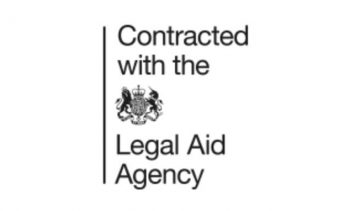The Home Office introduced new guidelines concerning the good character requirement for naturalisation which came into effect on 28th June 2022. These changes present a more lenient approach, enabling individuals who have previously entered the UK illegally or overstayed within the last decade to qualify for naturalisation, provided they currently hold Indefinite Leave to Remain (ILR).
Lawful Residence: The Old and the New
Before this update, any immigration breach relating to lawful residence could lead to a rejection of the naturalisation application. These breaches encompassed scenarios such as overstaying, absconding, and illegal entry. The lawful residence aspect was crucial to naturalisation applications in two distinct ways:
- Prior to 28 June 2022, any immigration breaches occurring within the 5-year period before a citizenship application were usually grounds for denial of citizenship. The refusal was premised on not meeting the lawful residence requirement as outlined in section 4 and section 6 (in conjunction with paragraphs 1 and 2 of Schedule 1) of the British Nationality Act (BNA) 1981.
- If the breach happened within the 10-year period before the citizenship application, it was typically a basis for rejection of citizenship on the grounds that the applicant did not meet the good character requirement.
The Recent Amendments
The law has now been amended such that individuals can be considered to meet the lawful residence requirement during the 5-year qualifying period, provided they hold indefinite leave to enter or remain in the UK.
Following this legal change, individuals who have committed immigration breaches relating to illegal entry, absconding, and overstaying can be treated leniently while assessing good character during the 10-year period before the application. However, this is subject to the following conditions:
- The individual is applying for naturalisation or registration as a British citizen under s.4(2), 6(1), or 6(2) of the BNA 1981 after 28 June 2022.
- The individual holds indefinite leave to enter or remain in the UK.
- No concerns have arisen since the grant of indefinite leave to remain that might cast doubt on the decision.
However, immigration breaches relating to lawful residence will still be considered along with other good character factors for specific applications. These can include cases where:
- Previously unknown information has been discovered which, if known at the time of granting settlement, might have led to refusal.
- Any incidents post the grant of settlement indicate that the revocation of that status might be appropriate.
- Applications to naturalise as a British overseas territory citizen.
- Immigration breaches not relating to lawful residence such as working in violation of conditions, employing illegal workers, or failure to observe reporting requirements will still be considered.
What Does This Mean for Your Naturalisation Process?
The new guidance opens doors for many applicants who, under the previous laws, would have had to wait for 10 years after violating immigration rules before they could apply for naturalisation.
Are you considering applying for naturalisation as a British citizen under these new rules? Schedule a free consultation with our Personal Immigration Team at Adel Jibs & Co Solicitors today to discuss your eligibility and how you can benefit from this latest amendment.
Please note that the information provided here serves general purposes only and should not be considered a substitute for professional legal advice.


